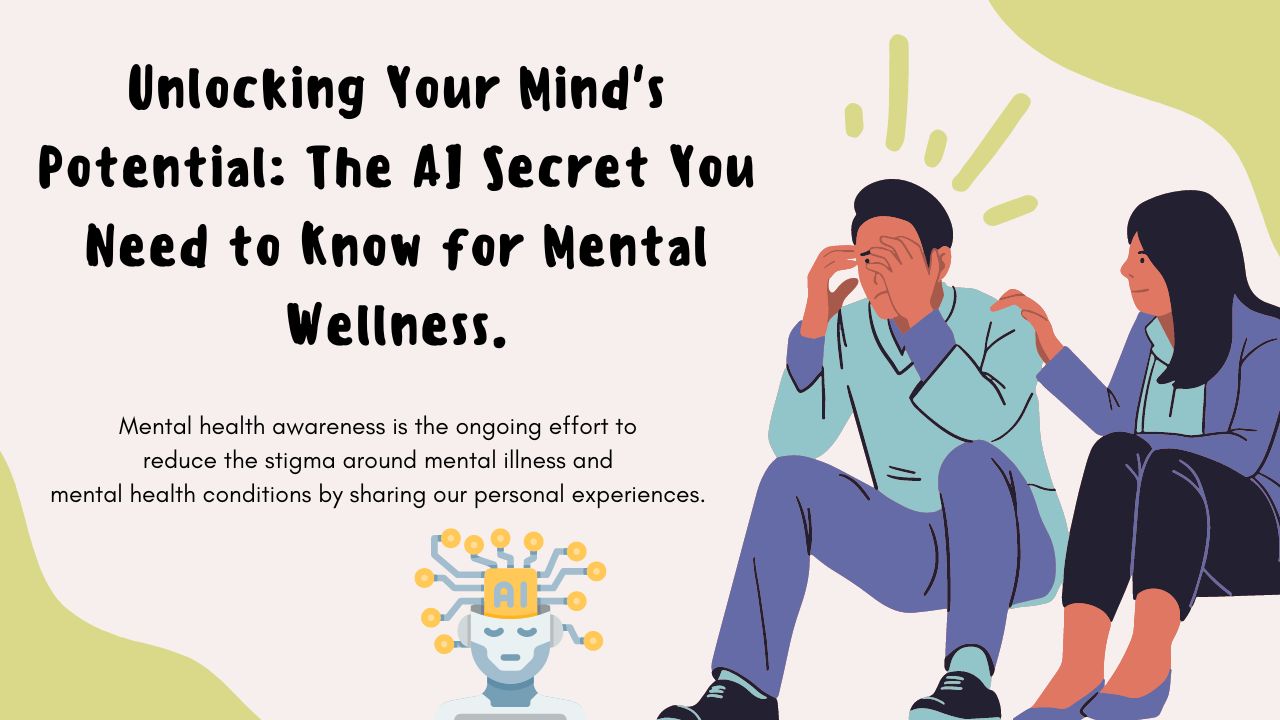
In recent years, there has been a significant shift in the way mental health care is perceived and delivered. With advancements in technology, particularly in artificial intelligence (AI), there is growing potential to revolutionize the field of mental health support. One area where AI shows immense promise is in providing personalized and immediate care through natural language processing (NLP) programs. These AI-powered chatbots have the capability to offer tailored assistance, mitigate bias, and even support clinicians in their practice.
The Rise of AI in Mental Health Support
Mental health issues are pervasive, affecting millions of individuals globally. However, accessing timely and personalized care remains a challenge due to various factors, including stigma, cost, and a shortage of mental health professionals. AI-based solutions, particularly NLP-powered chatbots, are increasingly being recognized as valuable tools in addressing these challenges.
Personalized Care through NLP
One of the primary advantages of AI in mental health care is its ability to provide personalized support. NLP algorithms analyze vast amounts of textual data, allowing chatbots to understand and respond to individuals’ unique needs and preferences. Through conversational interactions, these chatbots can offer tailored recommendations, coping strategies, and resources, thereby providing users with a sense of support and understanding.
Moreover, NLP-powered chatbots can adapt their responses based on the user’s language, tone, and emotional cues, creating a more empathetic and engaging interaction. By fostering a sense of connection and empathy, these chatbots can enhance user engagement and encourage individuals to seek help when needed.
Immediate Assistance and Accessibility
Another significant benefit of AI in mental health care is its ability to offer immediate assistance and support 24/7. Unlike traditional mental health services that operate within specific hours and may have long wait times, AI-powered chatbots are available round-the-clock, providing users with instant access to support wherever they are.
This accessibility is particularly valuable during times of crisis when individuals may require immediate intervention or assistance. NLP-powered chatbots can offer crisis management strategies, suicide prevention resources, and emergency hotlines, ensuring that individuals receive timely support when they need it most.
Mitigating Bias in AI Chatbots
While AI has the potential to revolutionize mental health care, it is essential to address concerns related to bias and fairness in AI algorithms. Bias in AI chatbots can manifest in various ways, including the perpetuation of stereotypes, unequal treatment based on demographic factors, and insensitivity to cultural differences.
To mitigate bias in AI chatbots, developers must prioritize diversity and inclusion in dataset collection and algorithm design. By incorporating diverse perspectives and experiences, developers can create more inclusive and culturally sensitive chatbots that resonate with a broader range of users.
Additionally, ongoing monitoring and evaluation of AI chatbots are essential to identify and address any biases that may emerge over time. By regularly analyzing user interactions and feedback, developers can identify areas for improvement and refine their algorithms to ensure fairness and equity in service delivery.
Supporting Clinicians in Mental Health Practice
In addition to assisting individuals directly, AI-powered chatbots can also support clinicians in their mental health practice. These chatbots can act as virtual assistants, helping clinicians streamline administrative tasks, gather patient information, and monitor treatment progress.
Moreover, AI chatbots can augment clinicians’ diagnostic capabilities by analyzing patient data, identifying patterns, and flagging potential risk factors or symptoms. By leveraging AI-driven insights, clinicians can make more informed decisions and personalize treatment plans based on individual needs and preferences.
Furthermore, AI chatbots can support clinicians in delivering evidence-based interventions and psychoeducation to their patients. By providing access to a vast repository of therapeutic techniques and resources, these chatbots can enhance the quality and effectiveness of mental health care delivery.
Conclusion
AI-powered chatbots have the potential to revolutionize mental health care by offering personalized, immediate, and accessible support to individuals in need. Through natural language processing, these chatbots can understand and respond to users’ unique needs, mitigating bias, and fostering empathy in their interactions. Additionally, AI chatbots can support clinicians in their practice by streamlining administrative tasks, augmenting diagnostic capabilities, and enhancing the quality of care delivery. While challenges related to bias and fairness persist, ongoing efforts to address these issues are crucial to realizing the full potential of AI in navigating mental health.
In conclusion, AI-powered chatbots hold immense promise in transforming mental health care delivery, offering personalized support to individuals and assisting clinicians in their practice. By harnessing the power of natural language processing and addressing concerns related to bias, these chatbots have the potential to revolutionize how mental health support is accessed and delivered, ultimately improving outcomes for individuals worldwide.






